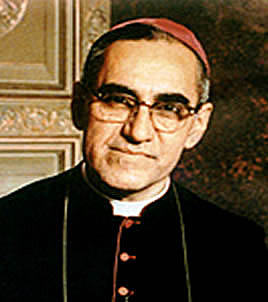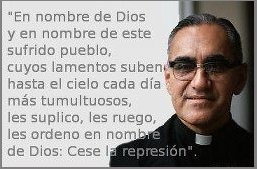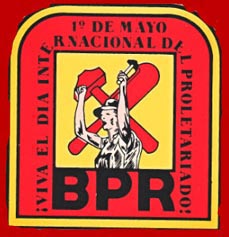It is not one particular event that I want to remember, but rather the amazing people of CISPES who are still my best friends and an important family to me. I held many positions in 3 cities over 13 years, and the highlight for me is the 3 years that I worked at the National office which was in Washington, DC. This was the peak time in the late 80’s.We produced the Pentagon action, the 90 days and the Commemoration for Archbishop Romero, March 1990, which is known as the Arch March. Also we raised over $1 million in material aid for the People of El Salvador, sent hundreds of activists on delegations; all while we were fighting off the FBI. (We won.)
still my best friends and an important family to me. I held many positions in 3 cities over 13 years, and the highlight for me is the 3 years that I worked at the National office which was in Washington, DC. This was the peak time in the late 80’s.We produced the Pentagon action, the 90 days and the Commemoration for Archbishop Romero, March 1990, which is known as the Arch March. Also we raised over $1 million in material aid for the People of El Salvador, sent hundreds of activists on delegations; all while we were fighting off the FBI. (We won.)
The collective who spent every waking moment providing solidarity to the people of El Salvador included Mike, Ellen, Christina, Stephanie, Beth, Julie, Vicki Ken, Lynne, Lisa, Hugh, Michael and many other compas. I especially want to mention our leader, Angela Sanbrano who has never spoken a discouraging word (as Don White was fond of saying.) She was the bridge that brought the Salvadorans and the Gringos together and kept us all motivated. On the day of the Arch March it was snowing so much, I couldn’t see the Capitol from North Capitol Street and Angela walked outside the house and said, “Oh look, I see a little patch of blue in the sky.†I had lunch with her last week and she still has hope. I was really proud to see her on the jumbotron, leading the Immigration Reform rally on the Mall, this March.
I also worked in San Francisco and New York and was an organizer at the NO so I got to visit all the regional offices. Every couple of months each region would gather the chapter activists together for analysis, strategy and organizer training. In 1989 there were more than 75 people employed across the country with salaries (small ones, but salaries), In the summers we had national meetings. We all spent an entire week, a very hot one, at the Washington Peace Center. After that we scored Camp Kinderland in Massachusetts which had a lake and a costume room for much pleasanter weeks. So here is a shoutout to my friends, Paul, Brooke, Phil, Patty, Gina, Eileen, Conor, Kevin, Sarah, John, Vicky, Julie, Debbie, Jacquie, The Proke, Marcia, Jon, Marcy, David, David, Bill, Don, Darcy, Hannah, Ann, Julie, Tracey, Lisa, Salvador, Holly, Aquilles, Margie, Mike, Mary, Geoff, Donna, Cherrene, Van, Tom, Jill, Zeno and so many more.
Solidarity meant that we had real relationships with the People of El Salvador. The FMLN reps who gave us analysis, the compas who had come to this country and all of the people that we met on our delegations to El Salvador were our friends. Forgive me if I didn’t mention your name. Much love to the great family that is CISPES. A proud 30 year anniversary.
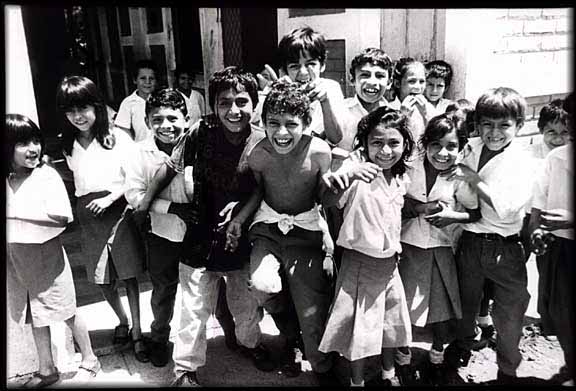
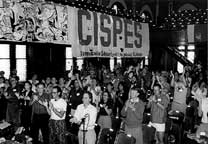
 El Salvador. It is where Ronald Reagan said he would “draw a line in the sand” against communism before it reached our very doorstep. Mounting atrocities, perpetrated by a regime that US tax dollars were propping up, outraged people of conscience in the United States – and compelled us to militant action. Tens of thousands of US activists responded immediately. We knew which side of Reagan’s line we needed to be on: on the side with those fighting for a democratic revolution.
El Salvador. It is where Ronald Reagan said he would “draw a line in the sand” against communism before it reached our very doorstep. Mounting atrocities, perpetrated by a regime that US tax dollars were propping up, outraged people of conscience in the United States – and compelled us to militant action. Tens of thousands of US activists responded immediately. We knew which side of Reagan’s line we needed to be on: on the side with those fighting for a democratic revolution.